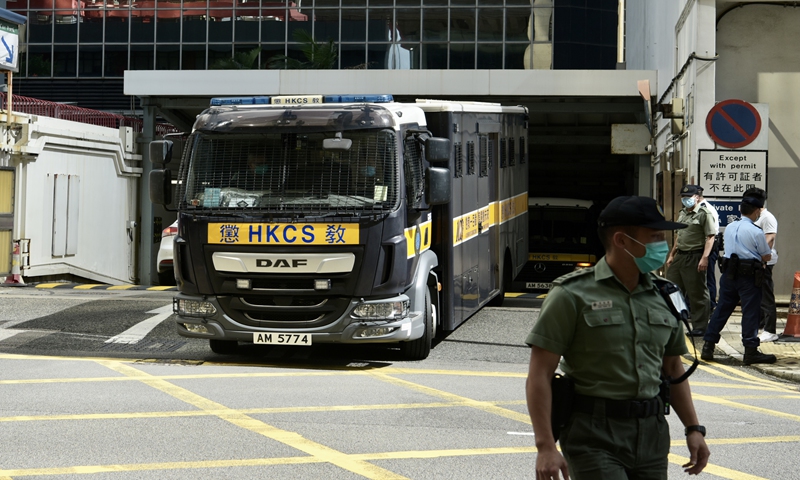Legal experts refute Western media hype over Prison Rules amendments in Hong Kong, calling revision ‘urgent and necessary’

In response to Western media's hype over the recent proposed amendments to the Prison Rules in the Hong Kong Special Administrative Region (HKSAR), claiming that the move would further undermine prisoners' rights, some legal experts told the Global Times on Tuesday that the revisions seek to regulate visitation rights, which align with international standards and are deemed urgent and necessary.
The HKSAR government has proposed amendments to the long-standing Prison Rules, which include tightening visitation arrangements and banning the use of "private clothing" and "private meals," local media TVB reported on Friday.
Reuters, citing an unnamed lawyer, claimed on Monday that this proposal further 'extends the power' of authorities over those accused of national securityoffenses.
The HKSAR government has proposed amendments to the Prison Rules, including empowering the Correctional Services Department (CSD) to refuse any visit deemed inconsistent with statutory purposes, according to an official statement issued Monday. Under specific circumstances such as safeguarding national security, the CSD may, with a magistrate's warrant, restrict communication between inmates and individual legal representatives.
HKSAR Secretary for Security Chris Tang addressed the media after attending a Legislative Council Security Panel meeting on Monday, stating that the Prison Rules have existed for over 70 years. In light of national security considerations, the government sees a need to review and update the regulations, the statement said.
He explained that the objective of the proposed amendments is to enhance the CSD's overall law enforcement capabilities, incorporate elements related to the protection of national security, and make the Prison Rules more relevant to current needs.
To this end, the authorities propose explicitly empowering the CSD under relevant provisions of the Prison Rules to impose necessary restrictions, conditions, or prohibitions in response to different circumstances and for specific purposes.
"These proposals are based on the practical needs of safeguarding national security and managing correctional institutions," Willy Fu, a law professor who is also director of the Chinese Association of Hong Kong & Macao Studies, told the Global Times on Tuesday.
Since the implementation of the National Security Law (NSL) for Hong Kong, stricter management of correctional institutions has become essential to prevent acts that endanger national security. The proposed amendments empower the Commissioner of Correctional Services to restrict certain visits—particularly those involving legal representatives, medical personnel, or religious figures—to prevent such visits from being abused to transmit prohibited information or incite unrest within prisons, Fu noted.
"This measure aligns with Article 6 of the NSL for Hong Kong, which requires all individuals, organizations, and institutions in the HKSAR to strengthen efforts to prevent and suppress acts that endanger national security," Fu said.
Louis Chen Xiaofeng, Doctor of Juridical Science, told the Global Times on Tuesday that the amendments are considered both urgent and necessary.
During the 2019 black-clad unrest, some so-called "prison visitors" exploited access, posing as inmate friends, to incite anti-government sentiment. In some cases, "private meals" were used to smuggle contraband and fosterprison factions, seriously undermining prison order and social stability, Chen said.
"The revised rules would empower the CSD to reject visits that do not serve a legitimate purpose, effectively cutting off channels for external infiltration," he added.
From a law enforcement standpoint, abolishing "private meal" privileges will help prevent abuse of special treatment, ensure fairness in prison administration, and reduce the risk of drugs and prohibited items entering correctional facilities—bringing the system in line with internationally accepted standards, Chen said.